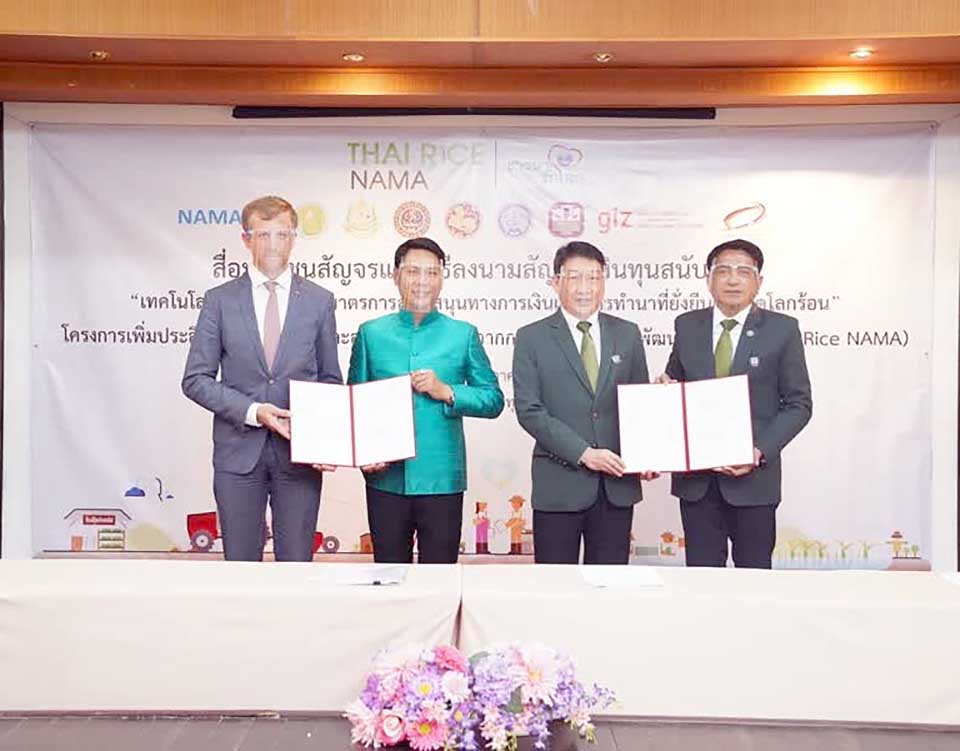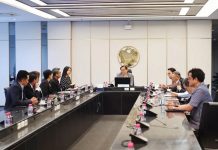
The Thai Rice Nationally Appropriate Mitigation Actions or the Thai Rice NAMA project is going to provide financial support packages to farmers and agripreneurs, so that they have better access to land preparation, laser land leveling (LLL) services, and stubble management for climate-smart rice farming.
The Thai Rice NAMA project is a collaboration between the Rice Department, the Bank for Agriculture and Agricultural Cooperatives (BAAC), and German International Cooperation (GIZ).
Representatives from the three agencies signed a grant agreement at Pathum Thani Rice Research Center to collaboratively implement the Half-Half co-payment scheme to make mitigation services and low-emission rice farming technologies accessible to Thai farmers and agripreneurs.
Farmers living in pilot areas are eligible to apply for ‘Package 1’ of the scheme. Following approval, they will receive a 50% subsidy along with a 50% pre-finance option for Land Preparation and Laser Land Leveling (LLL) services in rice fields up to a maximum of 2,000 baht per rai in total.
Agripreneurs interested in becoming LLL service providers can apply for the so-called ‘Pro 2’ package. It includes free training programs organized by the project and the eligibility to apply for new financial measures for service providers to purchase the LLL equipment set. This financial measure will offer subsidies of up to 50% on each set price but not exceeding 200,000 baht per person.
Rice is important as it is cultivated on roughly half of all agricultural land in Thailand and accounts for nearly 55% of climate emissions from agriculture. Thailand is the world’s fourth-largest emitter of rice-related greenhouse gases. In irrigated rice production, flooding of paddy fields leads to significant emissions of methane, which has a global warming potential 28 times higher than carbon dioxide. The lack of incentives available to farmers is preventing a fast transition to low-emission rice production practices. (NNT)
 |
 |
 |





